You might know that one of the dirtiest and most bacteria-laden places in your home are your sinks. Think about all the stuff you throw in there! Normal hot water and soap aren’t going to do it. Here’s what you need to do: wet the surface of the sink, then scrub it with baking soda that has been sprinkled onto a sponge.

After doing that scrubbing, pour three percent hydrogen peroxide over the entire surface and let it sit for a while before rinsing everything away. The baking soda-peroxide mix is a powerful one, and it will not only get rid of bacteria that has been lingering but freshen up the look of the sink, too.
Up Your Waterpick Flossing Game
Flossing your teeth is just as – if not more – important to your dental health as brushing. Like a lot of people, however, you might be sick of using a little rope between your teeth. A Waterpik is something that a lot of people have turned to since it dislodges food without harming sensitive gums.
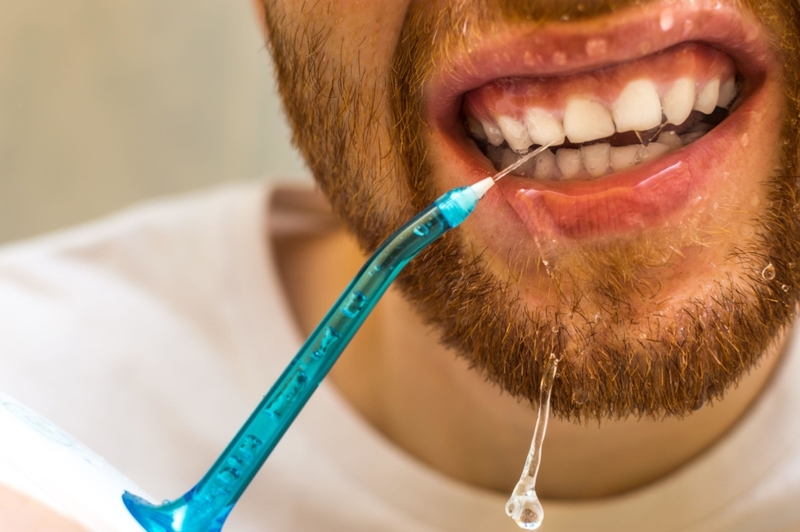
Mix in a small amount of hydrogen peroxide to the canister of water before you get started to make the water tough against the bacteria that can cause toothaches and bad breath, too. Rinse your mouth thoroughly after you're done since you don't want to accidentally ingest any of it.
De-Must Clothes and Towels
If you've sent that favorite shirt through the wash a dozen times and it still comes out smelling funky, you'll need to do something more. Regular detergent works to get stains and dirt out of clothes, but not stuff like mold. You don't want that on your clothes, so take those nasty rags, wash them in a mixture of white vinegar and hydrogen peroxide, and they'll come out fresh again.

A word of caution – doing this with dark clothing will almost certainly leave you with clothes that are no longer dark. Light-colored clothes won't see much difference, and may even come out looking brighter.
Turn the Tables on Your Washing Machine
Your washing machine keeps your clothes clean, but how often do you give IT a clean? If you have a high-efficiency front-load washer, you might have noticed a funky smell. That would most likely be mold and mildew due to detergent and fabric softener that is left inside the washer drum, where it can't be rinsed out.

To rectify this, throw two cups of hydrogen peroxide into the empty washer drum, and turn on the hot water. Not only will doing this at regular intervals (once a month is plenty) keep your washer from smelling, it will also keep your clothes fresher. Can't beat a win-win.
Protect Your Sandals and Your Feet
Showers are super dirty – that's just a fact of life. No matter how much scrubbing or peroxide-dousing you're going to do, you won't be able to get rid of everything on the floor, which is why many people shower with rubber flip flops. But those can get just as dirty.

Thankfully, the soft material is much easier to clean. Douse your flops in hydrogen peroxide and let them sit for a little while, then rinse them off.
Make Sure Tiles Get the Best Treatment
Hydrogen peroxide works on the grout between tiles, but what about the tiles themselves? Here's what you do if you want the cleanest tilework around: mix hydrogen peroxide with flour until it's thick enough to spread as a paste, and use it to cover your tiles. Cover it with plastic wrap and let it sit overnight. The next day, take the plastic wrap off and clean up the paste.

Use some water to make sure you get all of it away (you don't want it to get into your food) and you'll find your tiles look amazing. No, no, don't thank us. We're just doing our jobs.
Get Rid of Unwanted Weeds
First off – make sure those are actually weeds. Then, mix one ounce of three percent hydrogen peroxide with one quart of water in a spray bottle, and take aim at the weeds that have sprung up in your garden or around your house. Leave it for about fifteen minutes, and by then those weeds will have given up the ghost.
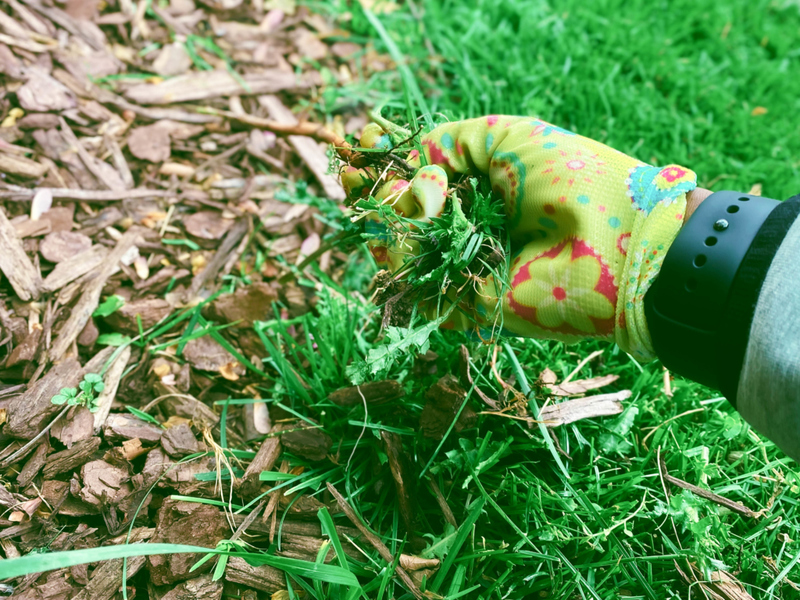
Make sure to be careful with the spraying – but know that if you hit any bigger plants with the mixture, they may actually appreciate it, since hydrogen peroxide has plenty of benefits for plants. For smaller plants like weeds, however, it's dangerous stuff.
Safely Transport Fish
No, not fish that are destined for the grill – these would be the fish that are colorful and fun and ready for a home in your aquarium. If you're moving them around in a plastic bag, you can add a little bit of hydrogen peroxide. HP is H2O2, and the extra oxygen keeps fish happy.

But watch out! This shouldn't be the liquid HP that the rest of this article is talking about. There are little tablets that dissolve in water for a controlled release of oxygen. It's even possible to save a fish by adding a handful of these tablets to water as a last resort.
Get Rid of Mites
Bed Bugs. Chiggers. Red dots. Whatever you call them or wherever they're showing up, mites are an incredible problem. They suck your blood, they infest your home, and they're basically impossible to see. But, if you know where some are hiding, then you have a way to fight against them. All you have to do is pour some hydrogen peroxide into a spray bottle and go wild.

Let it sit for a little while, and then wipe it up, and you won't have any more living mites where you sprayed. It won't get rid of the entire problem, but it will strike a blow against the little buggers.
Make Tablecloths Ready for a Fancy Dinner
Have you ever brought out the best tablecloth for Grandma's visit, only to find that it's become yellowed with age? You won't need to run out and buy a brand new one, but you might need some hydrogen peroxide. If there are yellow areas, wipe them down with some hydrogen peroxide and then rinse them out.
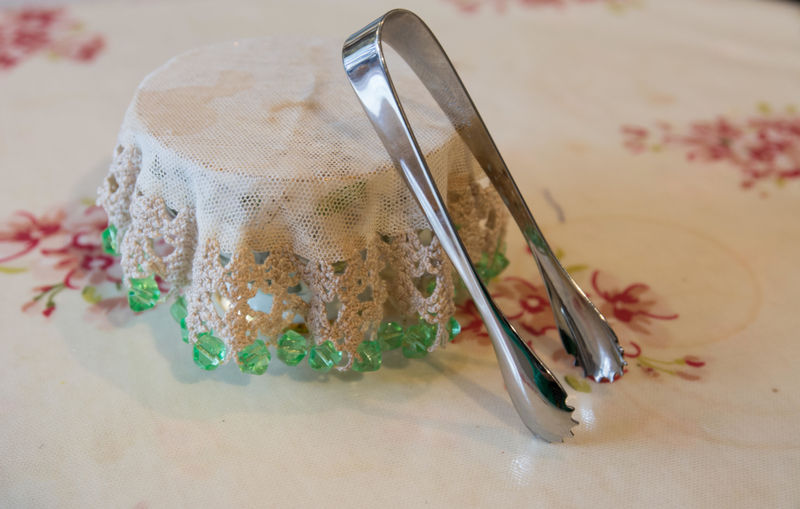
Or, throw it into the washer with all your other whites and put some hydrogen peroxide in instead of bleach to get everything bright again. This also works with white curtains and other white pieces of fabric.
Bust Up Caked-On Food
If you do a lot of cooking at home, you'll find that your pots and pans will accumulate caked-on food, even if you're quick washing them. Usually, a good bit of elbow grease can get it out, but if you're having issues, hydrogen peroxide is the key. Combine a little bit of hydrogen peroxide with baking soda until it forms a paste, and then rub it onto the dirty spots. After it sits for a few minutes, scrub it away using warm water.

The baking soda is abrasive, and the hydrogen peroxide breaks the particles up. You shouldn't have any other issues.
Reduce the Power of the Common Cold
There's no cure for the common cold, not even hydrogen peroxide. One of the things that some people have said helps them is a few drops of hydrogen peroxide into their ears. This is the kind of thing you should ask your doctor about, but there is a little bit of science behind it – HP kills bacteria.

Now, the common cold is a virus, but bacteria can add to it. The ear canal is directly connected to the sinuses, which is where a lot of those fun cold symptoms take place. There are plenty who think it won't hurt, but it's all up to you.
Remove Those Troublesome Lipstick Stains
We aren't judging – we're just here to help you out. Let's say that you were at a wedding, and you got to see some aunts who just wanted to hug their nephew. All you need to do to get rid of those stains is blot the stain with a soft, damp cloth to remove as much of the lipstick itself as possible. Then, pour a few drops of hydrogen peroxide on the stain and rub in a gentle circular motion.
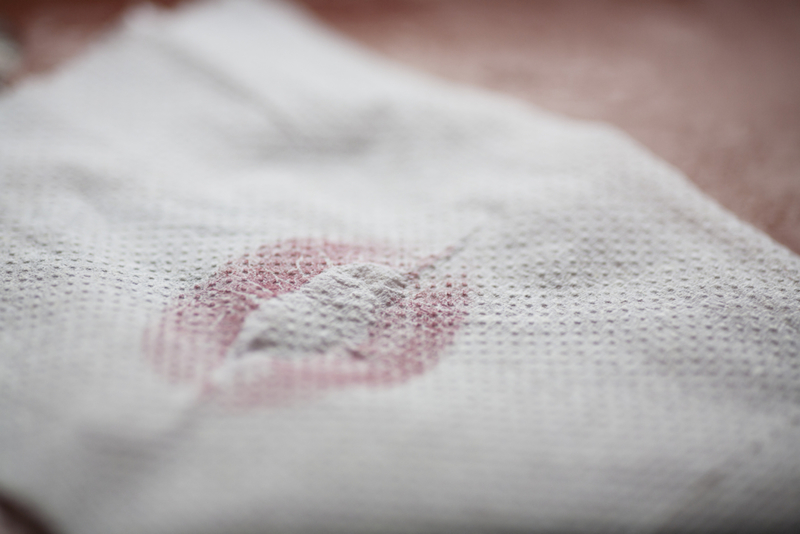
Finally, put the piece of clothing in the wash to finish the process. If you were applying your own lipstick and dropping it on your pretty dress, this is what you need to do, too.
Remove the Ring Around the Collar
Always make sure you present yourself in the best way possible. Those dress shirts might be the right fit, but if there's a ring around the collar, you're losing points. You can remove this stain – and others of the same kind – by spraying the area with a mixture that is two parts hydrogen peroxide and one part liquid detergent.
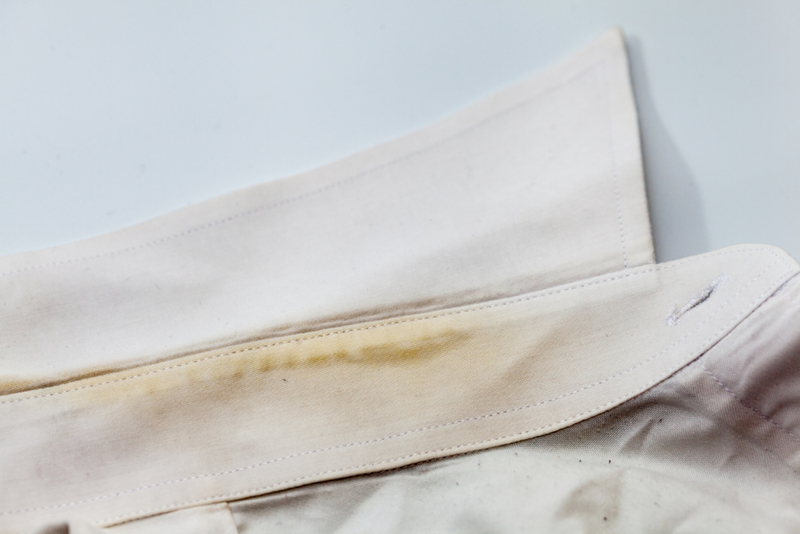
Let the cloth sit for an hour before rinsing, and those dress shirts will look ready for a big meeting. You might not be able to update the style as time goes on, but at least they'll be clean.
Lift Red Wine Stains Out of Clothing
In the course of normal life, while you're enjoying your favorite bottle of red, you're going to get a stain or two. Don't fear – mix together equal parts hydrogen peroxide and liquid detergent, and then pour the mixture over the stain. Use a clean cloth to blot the stain, and then rinse it out and wash it with warm water.
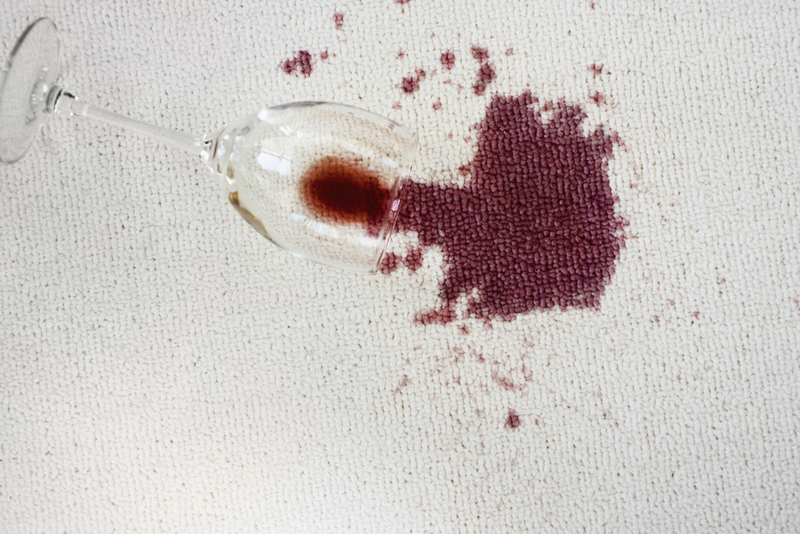
It might take a try or two to get the stain fully out, but eventually, your clothes will be back to normal. Just be careful when you're pouring your next glass.
Get Rid of Dirty Toothbrushes
A toothbrush is something that keeps your teeth clean, but you can imagine that those bristles will start to accumulate bacteria and other gross things the more you use them. Keep your toothbrush – and thus your mouth – cleaner by soaking it in a mixture of one teaspoon hydrogen peroxide and one cup of water. Just like it does with everything else, hydrogen peroxide will kill the bacteria that has been clinging to your toothbrush all this time.
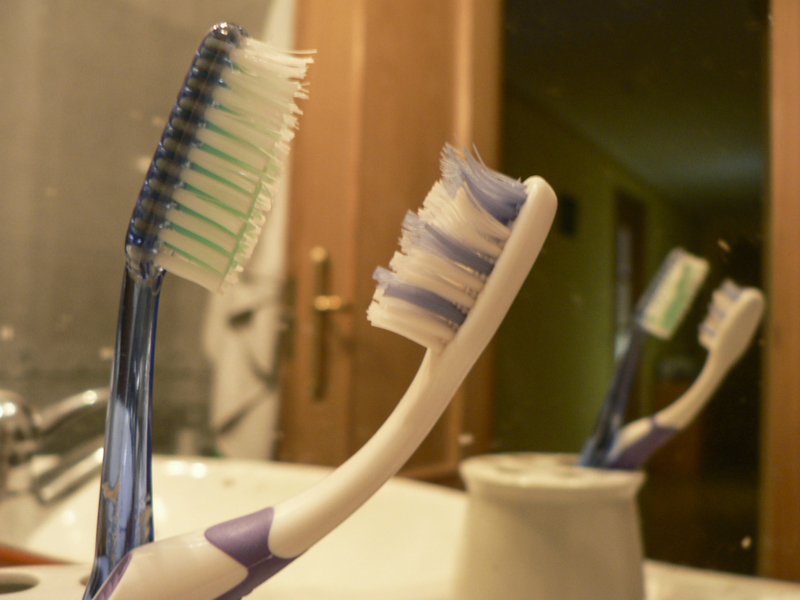
We'll be right back, we're going to go do this right now. It will prevent bad breath, toothaches, and plenty of other mouth-related events.
Clean Out Your Sinuses
Hydrogen peroxide is recommended to be used as a nasal spray for sinuses. If you're suffering from an infection, it's a safe and effective way to clean things out. Of course, never ever spray full hydrogen peroxide up your nose. Instead, ENT physicians recommend mixing one tablespoon of three percent hydrogen peroxide with one cup of non-chlorinated water (that's important).

This won't get rid of an infection, but it will kill off the acid that the bacteria is creating, which means less pain and swelling. Another way to do this is to mix baking soda with water.
Kill Off Skin Boils
If you've ever had a boil you know how painful and gross they can be. If you're having a problem with infected hair follicles, pour half a bottle of three percent hydrogen peroxide into your bath water and start soaking.
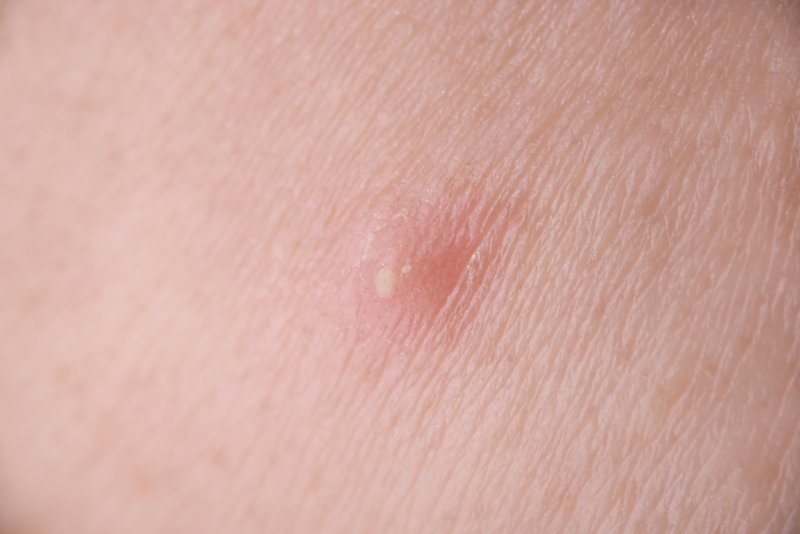
This will kill off the bad bacteria that has caused the infection, so it will not only help reduce current boils but should prevent the formation of new ones. Be sure to consult with a medical professional before attempting this or any other medical procedure that involves hydrogen peroxide.
Clean Up Your Lawn Furniture
You might think that you need a power washer or some intense chemicals and a lot of elbow grease to get your outdoor lawn furniture clean, but that's not the case. It is easiest with a sprayer, though – pour a gallon of warm water into the sprayer, and then add a fourth of a cup of three percent hydrogen peroxide, a few drops of dish soap, and a scoop of the sodium-based mineral powder borax. Spray your furniture down and let it sit for ten to fifteen minutes.

Scrub stains away with a nylon brush or sponge and finish off with a rinse from the hose.
Destroy Skunk Stink
You don't have to rely on tomato juice anymore. If you've had a run-in with a smelly rodent, you can clean it yourself using hydrogen peroxide. For clothes, mix one part of three percent hydrogen peroxide with six parts water (no stronger), soak your clothing for an hour or two, rinse thoroughly with cold water, and send through the machine on cold.
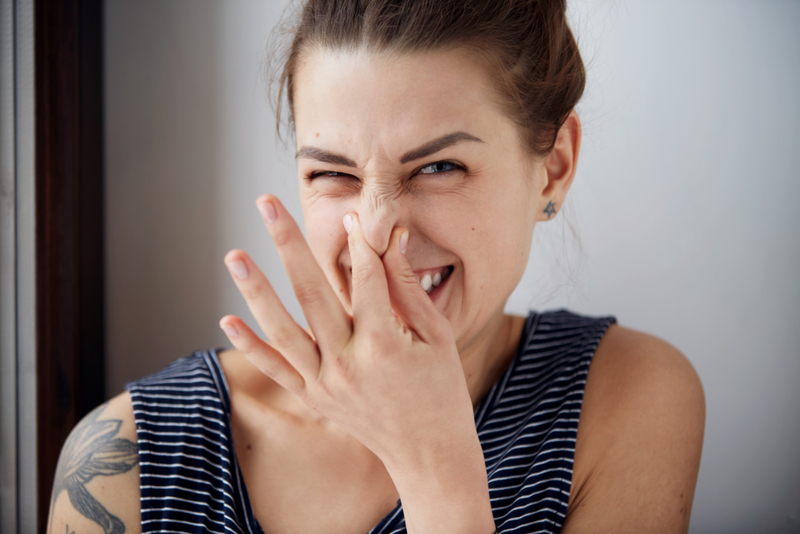
If it's you or a pet, combine a quart of three percent HP, half a cup of baking soda, and a teaspoon of dishwashing detergent, and start scrubbing, avoiding sensitive areas. Rinse outside to get rid of the odor as much as possible.
Get Rid of Marble Stains
If you want to maintain that expensive marble, you have to know how to get rid of stains. For organic stains (which will be pink or brown) mix a cup of twelve percent hydrogen peroxide with a few drops of ammonia. With the help of goggles, gloves, and plenty of ventilation, spray the mixture on the stains and let it sit for a minute or two – any longer and you risk damage.
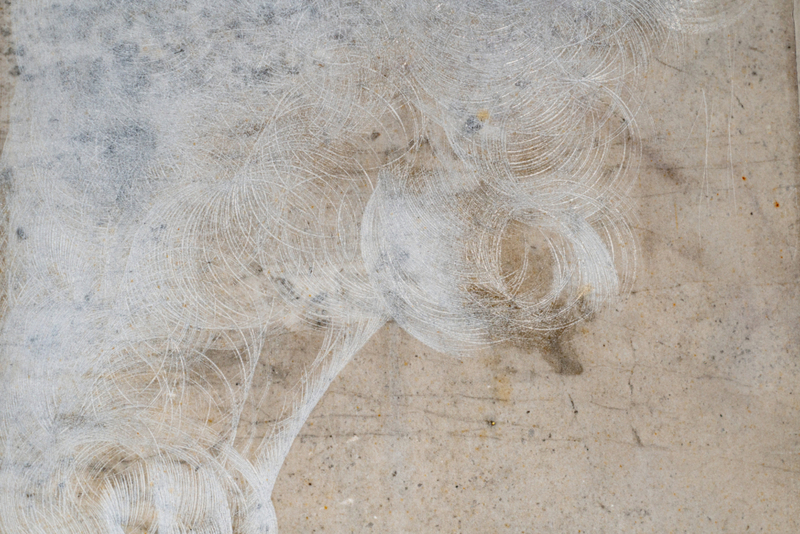
Wipe it away with a towel, and repeat until the stain disappears. Once it's completely gone, rinse the area well with water and clean with a dry towel.
Get the Perfect Metal Finish
You can create an immediate antique with the help of a little hydrogen peroxide. Make your metal special by removing paint and sanding the surfaces, then spraying with vinegar and waiting a few minutes. Mix two cups of three percent HP, four tablespoons of white vinegar, and one and a half teaspoons of table salt in a bottle. Soak the metal in the mixture, and you'll start to get immediate rust.

Make sure you're in a ventilated area, as the smell will be potent. If you end up not liking the look of the metal, remember that hydrogen peroxide can also be used to remove rust.
Clean Your Mattress
All that time you spend lying on your mattress is going to take its toll. Dirt, dust, even creepy crawlies, and bacteria will find their way onto your bed. Rest easy by giving your mattress a deep clean every six months. Remove all of the sheets and linens and give it some good vacuuming.
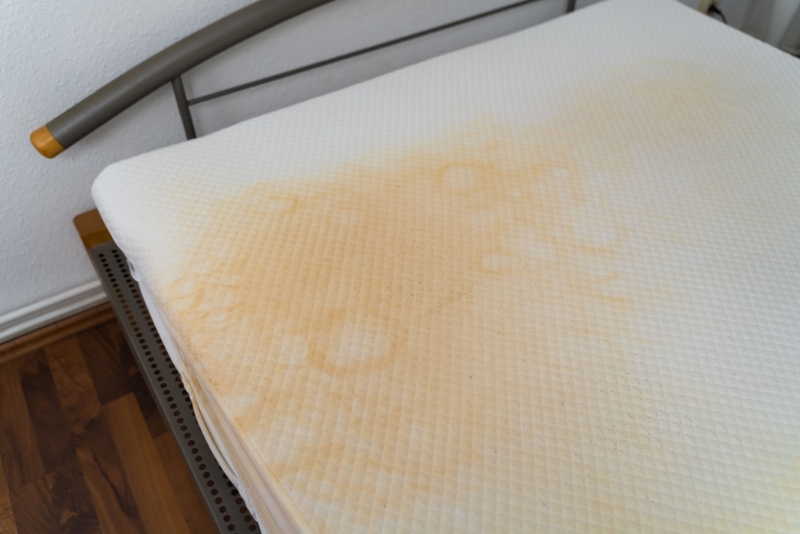
If there are any stains – and it's an unfortunate part of life that there will be, whether from drinks, bloody noses, or things like crayons – create a mixture using half water and half hydrogen peroxide. Work the mixture in with a clean, soft toothbrush, let it sit, and repeat if needed. Once the stains are gone use a hairdryer to remove all the moisture.
Make Some Homemade Toothpaste
It's probably best to use the stuff the experts come up with, but if you're out of tooth cleanser and your teeth are starting to feel fuzzy, there's a way to make your own. Mix two teaspoons of hydrogen peroxide with one teaspoon of baking soda, then gently brush your teeth and gums with the mixture.

Just as with regular toothpaste, you're going to want to avoid swallowing any of this mixture, but if you can't get to the store and need to keep your whites pearly, this can work in a pinch. It will both whiten your teeth and kill germs.
Give Your Cat a Clean Place to Squat
As you might imagine, litter boxes will end up getting pretty dirty, and there are plenty of bacteria and viruses that might start to appear. If you want to make sure things are as clean as possible, scoop all of the litter out, and then pour some three percent hydrogen peroxide in the bottom. Experts recommend at least half an inch.

Also spray three percent HP over all the sides of the litter box, even the outside. Let the box sit for about half an hour (longer is fine) and then dump all the hydrogen peroxide away and rinse the entire box out with water.
Keep That Cooler Feelin' Fresh
If you're the kind of person that takes a cooler on trips or brings a chest of ice to parties, you know they need to be cleaned or some disgusting things might start growing. Before storing it for the winter or between trips, give them a spray down with hydrogen peroxide, and you can be confident that nothing will grow inside.
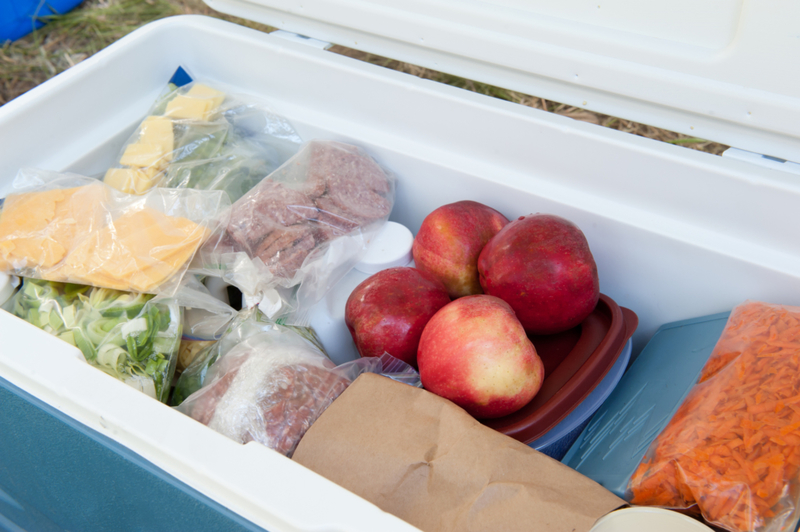
No need to worry about the mixture as long as you're sure to rinse after letting it sit. Wipe it dry and you'll have a cleaner cooler that will be ready for the next big party.
Improve Eyesight by Cleaning Contact Lenses
While traditional multi-purpose cleansers can get the job done, specialty cleansers that include hydrogen peroxide have been shown to clean, disinfect, remove clinging proteins, and more, for better eyesight and more comfort during wear.
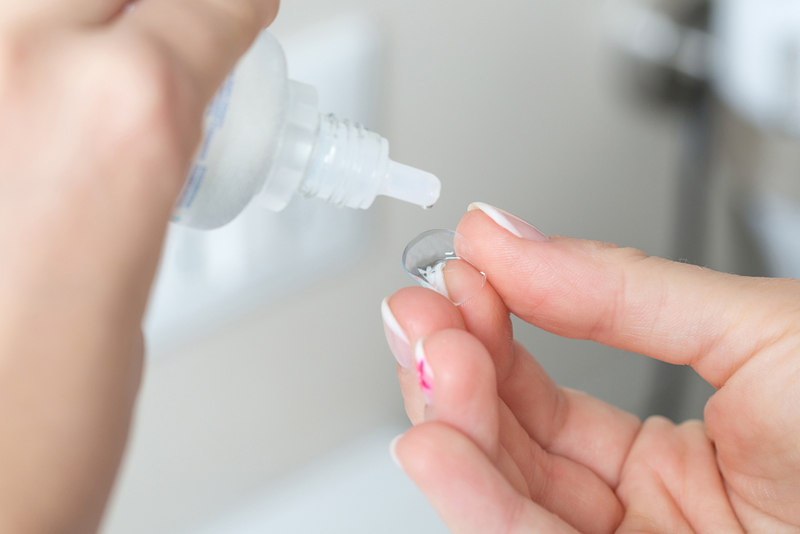
However, you can't just go adding hydrogen peroxide to water and then leaving your lenses in it for a night – the caustic elements of the chemical have to be neutralized through a chemical reaction too complex to explain here, or you'll end up with far, far worse things going on than just blurry contacts. Make sure to follow the instructions on your cleaner for the best results.
Get Garbage Out of Pet's Stomachs
Dogs love to eat things. They love to eat things that are bad for them. If they've gobbled down some chocolate, some grapes, or anything else they shouldn't, one way to get them to hork it back up is to induce vomiting using hydrogen peroxide. Without a doubt BE CAREFUL doing this, because it's just as possible to harm your pal using this chemical. Measure a dose of one milliliter of three percent hydrogen peroxide per pound of your animal's weight, up to forty-five milliliters, and use a turkey baster to administer it.

This method works for dogs, cats, pigs, and ferrets, but there are some animals you shouldn't do this for at all: rodents, horses, rabbits, or birds. Make sure to double-check with a vet.
Remove Mold From Plants
Keeping your plants healthy isn't a one-time thing. Water them every day, and that will usually be the most you need to do. But some plants will accumulate powdery mold or other types of fungal infections that will slowly sap the strength away from the plants, look unappealing, and may also be creating spores that will spread. The answer, once again, is a little bit of the ol' HP.

Mix four teaspoons of the stuff into a pint of water and spray your plants. Make sure it isn't full-strength hydrogen peroxide, as the powerful mixture may burn frail plants. Use a one, two, or three percent hydrogen peroxide and that should work fine.
Keep Granite Free of Water Marks
We all love some classy granite countertops. They're solid, smooth, and modern. But water stains never seem to go away once they appear. It's possible you already know the answer. Use a small bowl to mix up half a cup of baking soda and a few drops of three percent hydrogen peroxide to make a paste. Spread it over stains, let it sit for five to ten minutes, and then wipe it clean with a damp cloth.

If there are stains that just won't go away, cover the mixture with plastic wrap and leave it overnight. In the morning, wash it away and dry it with a soft towel.
Make Your Pond Water Look Perfect
If your water feature or koi pond is looking more like a scummy puddle than something you should be able to go out and relax next to, the solution might be in a brown bottle that you most likely have in your medicine cabinet. It's possible to safely treat the water in order to kill off harmful or unsightly algae. In order to clear a ninety-gallon pond or water feature, you'll need to add half a cup of three percent hydrogen peroxide.

For bigger or smaller amounts of water, you simply need to change the amount of hydrogen peroxide. The small amount won't affect any fish, but the algae will disappear.
Start Germinating Seeds Faster
It might seem counter-intuitive, but soaking seeds in hydrogen peroxide between one and three percent can help to soften the coats of the seeds and help germination start sooner than normal. Increase your plant yield in a flower garden or veggie garden easily by soaking seeds in hydrogen peroxide for twenty minutes, just before planting. Be careful not to soak them too long, or you might end up ruining them.
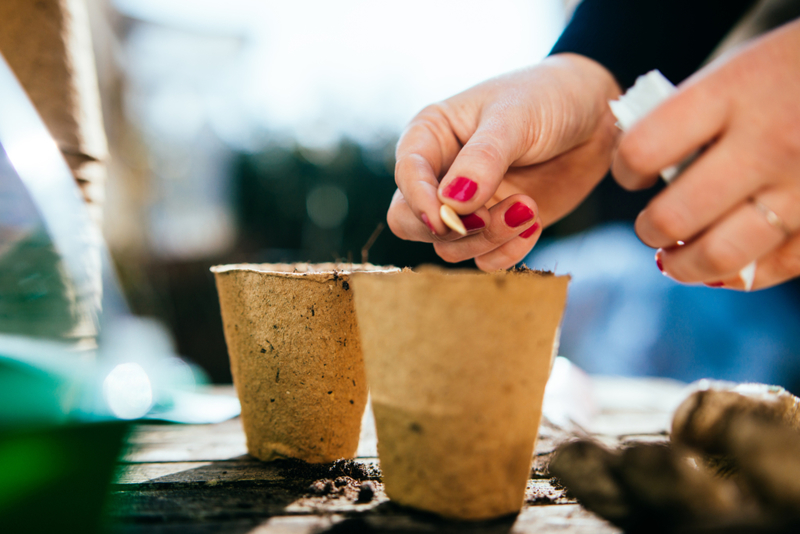
While some of the studies that show this has only been done on chili seeds, if you're willing to risk it, then it might be worth your time to try this interesting tactic out.
Make Soap Scum a Thing of the Past
Want to keep your shower the cleanest thing in the house? Here's what you do to scrape away all that buildup of soap scum. Create a foaming paste out of one cup of baking soda, a fourth of a cup of white vinegar, and a tablespoon or two of hydrogen peroxide. Once the bubbles fade, start going to town on the shower, the grout, the shower door, and anything else that has gained some buildup.
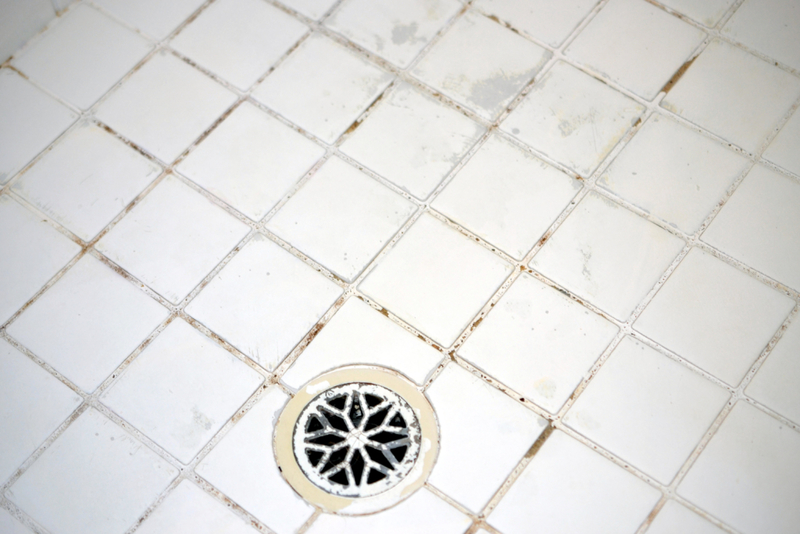
Watch out – if you're using straight peroxide, make sure to use gloves to protect your skin. Redness and burning are just the beginning of this powerful chemical when making contact.
Put a Shine Back on Your Porcelain
From a bathtub to a sink to an old toilet, there's plenty of porcelain in your home. After years or even decades of use, it can become faded and grimy, but there's a way to get it back to the way it once was. It doesn't matter if you think the yellowing of age can't be undone, there's a way.

This task is done with a pre-cleaning, scrubbing it down with baking soda, and then hitting it with a three percent hydrogen peroxide-soaked sponge until all the evidence of aging is gone. If you're able to put in the time and the elbow grease, you'll find your old fixtures look like they were just installed.
Make Your Garbage Can, Smell Like New Again
When it comes to stinky things in the home or office, the garbage can is at the top of the list and there's no wonder why. How could you possibly make it smell better again? With some handy, dandy hydrogen peroxide, that's how. After you've given the can a once-over with soap and water, hit it again with hydrogen peroxide and water solution, then let the can sun-dry for a few hours.
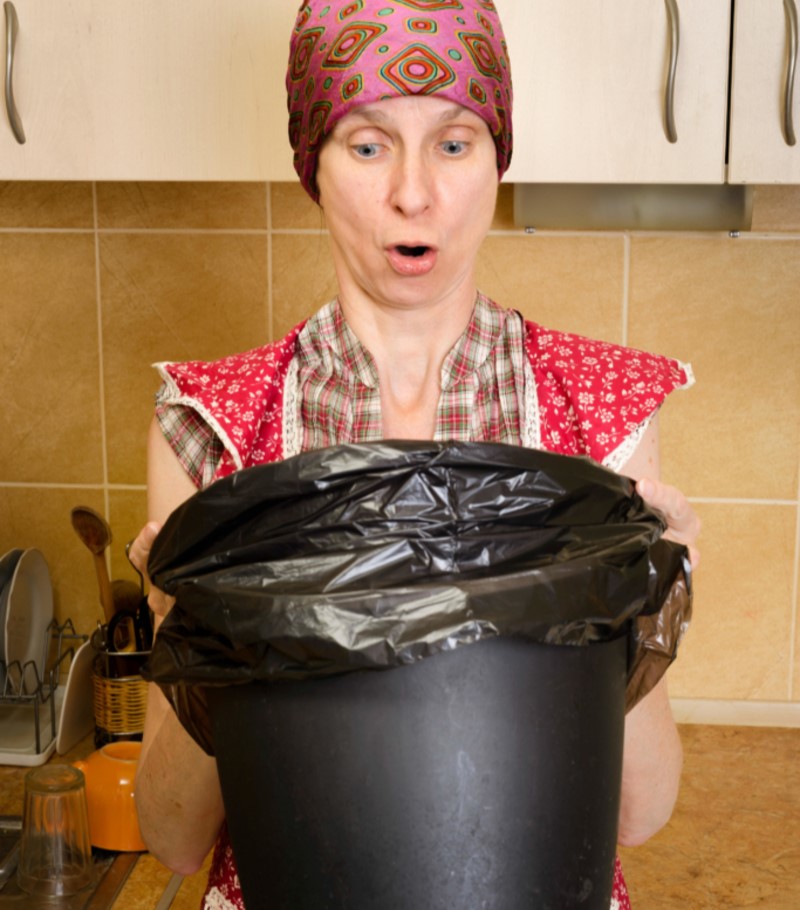
The surfaces will be shinier and newer, and you can be confident that the bacteria and other nasties have been removed. Whether a can for your kitchen or a dumpster outside, it will get rid of the smell.
Remove the Barnacles of Aging
If you've been around the block for a while, you might be familiar with something called “seborrheic keratosis,” which is commonly called the barnacles of aging. They're harmless skin growths that begin to appear once you have a number of decades under your belt, often looking like warts. Common places for them to appear are the neck, chest, and back.
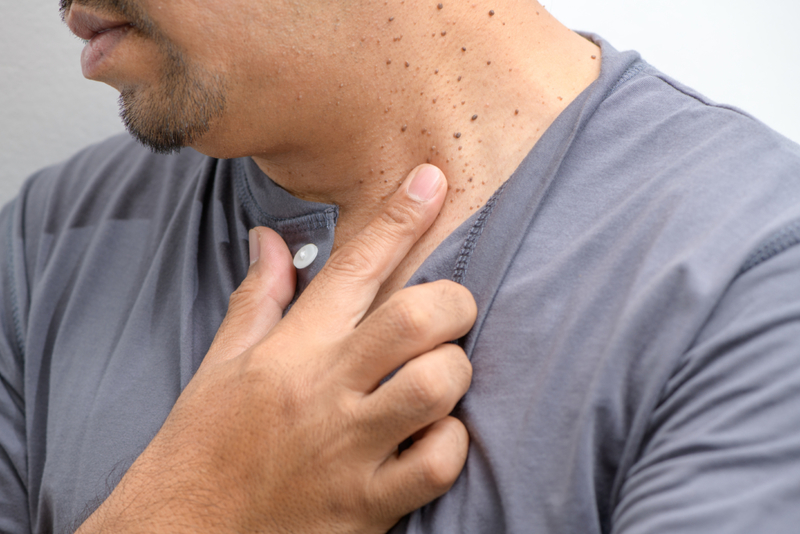
Hydrogen peroxide has been shown to be effective in removing them, as medicines aimed at the barnacles feature the chemical. If you're interested, be sure to talk to your doctor about the medicines. On the other hand, while these barnacles might be unsightly, they don't affect your health in any meaningful way.
Get Swollen Gums Back to Normal
If you've been lax in your brushing and flossing duties, you might see your healthy gums swell out a little bit. This is due to bacteria taking root, and your gums are swelling to fight it off. Give your gums a helping hand by mixing one part three percent hydrogen peroxide with two parts water. Swish it around in your mouth and then spit it out.

Another option for doing this is a saltwater mixture. Do it every day and hopefully, things will start to look better. If your gums are still swollen after a week, call up your doc.
Keep Your Kitchen Sink Sparkling and Healthy
You might know that one of the dirtiest and most bacteria-laden places in your home are your sinks. Think about all the stuff you throw in there! Normal hot water and soap aren't going to do it. Here's what you need to do: wet the surface of the sink, then scrub it with baking soda that has been sprinkled onto a sponge.

After doing that scrubbing, pour three percent hydrogen peroxide over the entire surface and let it sit for a while before rinsing everything away. The baking soda-peroxide mix is a powerful one, and it will not only get rid of bacteria that has been lingering but freshen up the look of the sink, too.
Soften Corns and/or Calluses
Corns on the feet can be extremely uncomfortable and irritating. If you have them, you’ve probably tried all of the store-bought stuff that you can find. Instead of spending all kinds of money every month on expensive creams, try this at-home solution next time your corns start to bother you.
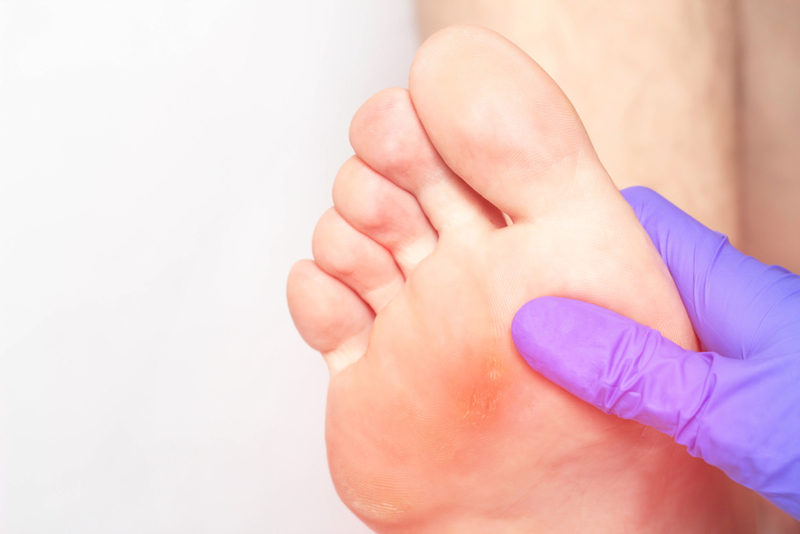
Create a foot soak with one-part water to one-part three percent peroxide in a large Tupperware or some type of tub you can fit both of your feet in. Soak feet for 20-30 minutes, which can also be measured as one whole episode of a comedy on Netflix. Repeat this process every night for as long as it takes to feel relief.
Keep Your Fridge Bacteria-Free
Your refrigerator probably isn’t something that you clean all of the time, but you should at least clean it out once every couple of weeks. After all, your family’s food all comes from inside of the kitchen staple, so you want to make sure you’re keeping it free of harmful germs that may make them sick.

Hydrogen peroxide makes an excellent refrigerator cleaning solution, thanks to its superb disinfecting skills and mild makeup. A bleach spray is a great way to kill germs, but it can also cause issues in itself if it gets on something that’s then eaten. Instead, use hydrogen peroxide and water to spray the shelves and crevices, and use a clean rag to wipe and scrub everything clean.
Kill and Prevent Germs on Grocery Bags
Using reusable shopping bags is a great way to do your part to protect the environment. But after you use your bags for a little while, they may start to stink. Or, something may come open during transport and you’ll need to clean them.

You can clean the bags in a couple of different ways. You can use your one-part water to a one-part peroxide spray bottle and spot clean the inside of the bags by spritzing and using a clean rag to wipe clean. Or, you can soak your bags in the bathtub for about 15 minutes or in the same solution, rinse them clean in cool water and hang them up to dry.
Keep Shower Curtains Clean
The bottom of a plastic shower curtain can start to get discolored, or moldy after a certain amount of time. Since you’ve probably got a bottle of peroxide under your sink anyway, here’s another trick for using it in the bathroom.
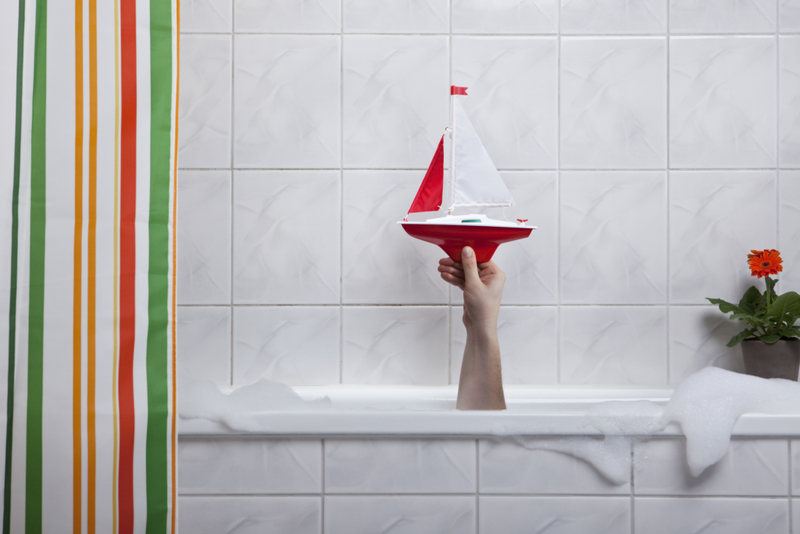
Keep a spray bottle full of hydrogen peroxide mixed with water (equal parts) next to your shower, or somewhere else that’s convenient. After every shower, spritz the inside of your shower curtain and the walls to kill and prevent bacteria growth and mold. You don’t even need to rinse, since the steam next time you hop in will handle all of that. Plus, the longer the solution is left to sit, the better.
Brighten White Curtains
White curtains look absolutely stunning – as long as they stay white, that is. After a while, they may start to turn a bit off-color, and the last thing you want is to have formerly white, yellow curtains gracing your living room when guests are over. But don’t fret, because there’s an easy solution to this problem.
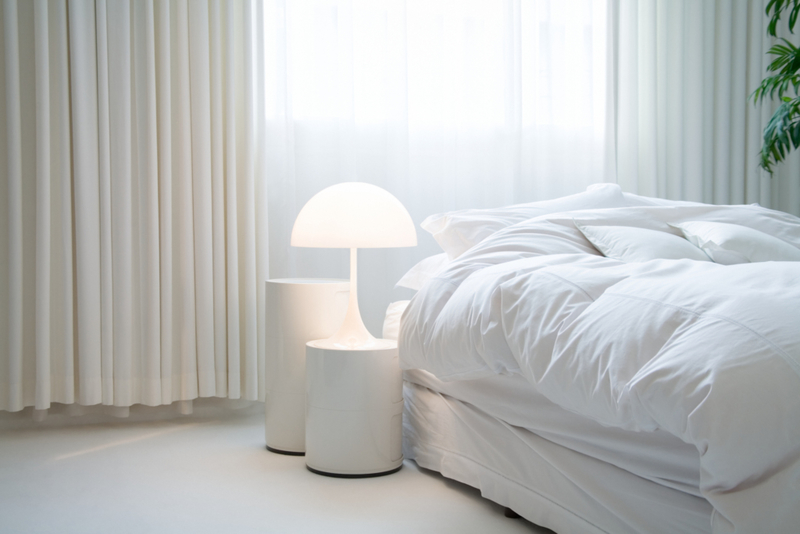
Toss the curtains in the wash with a cup of hydrogen peroxide for whitening all over. Alternatively, you can also grab your spray bottle full of equal parts water and peroxide and spritz down the curtains if there are just some spots you’d like to whiten.
Sanitize Kitchenware
Dishes can be a tricky thing to keep clean. You use them every day to put your food on and ingest the things that come off of them. You use your cutting boards to chop meat, and then vegetables later on. Without keeping everything sanitized, you’re risking getting sick from cross-contamination. You can spray your cutting board and knives with a bleach spray and then wash them with regular dish soap, but that can be pretty harsh.

If you prefer a more natural (and affordable) alternative, you guessed it; it’s time to grab the hydrogen peroxide. Mix one-part peroxide to one-part water in a spray bottle and use it to spray down kitchenware before you wash it regularly. Let the solution sink in for a few moments before washing off. Then, use your dish soap and sponge and rinse with clean water.
Kill Fungus
It shouldn’t come as any surprise after reading all about how hydrogen peroxide kills bad germs and bacteria, that it can also work to get rid of nail fungus. Fungus under your toenails can be embarrassing, especially during the warmer months when you want to wear open-toed shoes. Luckily, hydrogen peroxide works like a charm in this case.
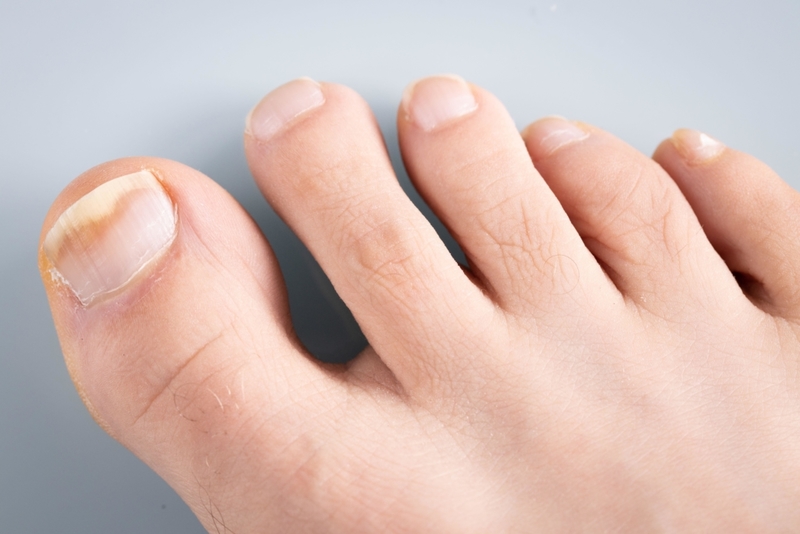
Fill up an old bucket or Tupperware with a mixture of 3% hydrogen peroxide and water (one-part to one-part works well.) Soak your feet in the liquid for 30 minutes, rinse in the bathtub and pat dry. A lot of the advice you’ll see floating around may tell you to use 35% hydrogen peroxide but don’t. It will be much too concentrated and can lead to adverse reactions.
DIY Grout Cleaner
Ah, grout, the arch-nemesis of tiles. It can be a pain to deal with, and also expensive at times if you continue buying store-bought grout solutions. Never fear, though, because hydrogen peroxide is here to save the day (and your shower walls!)

To mix up this DIY bathroom cleaner, mix up two parts of baking soda with one-part hydrogen peroxide. Put the paste all over the affected areas and let it sit for 10-15 minutes. Then, use an old toothbrush to scrub the grout lines until the discoloration fades away. This solution is especially helpful because not only does it help with the color, it helps to kill the bacteria and germs that are living in the grout.
Take a Detox/Oxygenating Bath
Adding some hydrogen peroxide to your next bath can produce all sorts of health benefits. For starters, it helps pull toxins and bacteria out of your skin, which allows the body to detox. Add a cup and a half to your next bath while the water is running. Soak for 20 minutes to half an hour. Try to use this method between 1-2 times per month, maximum.

If you’re suffering from a yeast infection or some other type of bacterial infection, it may also help to relieve your symptoms. Additionally, hydrogen peroxide baths may help to get rid of pesky parasites like lice. Whatever you’re using the soak for, be sure to rinse off completely when you’re done.
Kill an Ear Infection
Hydrogen peroxide is a simple and affordable solution to some types of ear infections in both children and adults. If using on a child, mix one-part peroxide to one part water and use an eyedropper to pull up some liquid and drop a few drops into their ears. Let it sit for 15-30 seconds before having them tilt their head to release the fluid.

Alternatively, you can use a cotton ball to soak the mixture up from the container after combining and squeeze it to release into the ear canal. It creates a bubbling and fizzing but it does help. Blot the outside of the ear dry with a clean tissue or towel after you’re done.
Purify Your Air
The air around your home is most likely full of all kinds of germs, from you, your children, your pets, and all of the coughing, sneezing, high-fiving, and more. You can find reasonably priced air humidifiers, but even more affordable, you can find oil diffusers that also act as humidifiers.

Grab an essential oil diffuser/humidifier and load it up with water. Then, add about 5-10 drops of hydrogen peroxide and 4-5 drops of your favorite essential oil and press start. The essential oil will help to make all of the rooms in your house smell amazing, and the hydrogen peroxide will help to kill any germs and bacteria that may be floating around.
Keep Towels Fresh and Clean
After a towel’s been used for a few days, bacteria can start to form – especially when it just sits around your bathroom and stays damp. While it may not make sense to use a new bath towel every day, you should at least rotate yours out 2-3 times per week to make sure you’re washing them as much as they need to be.
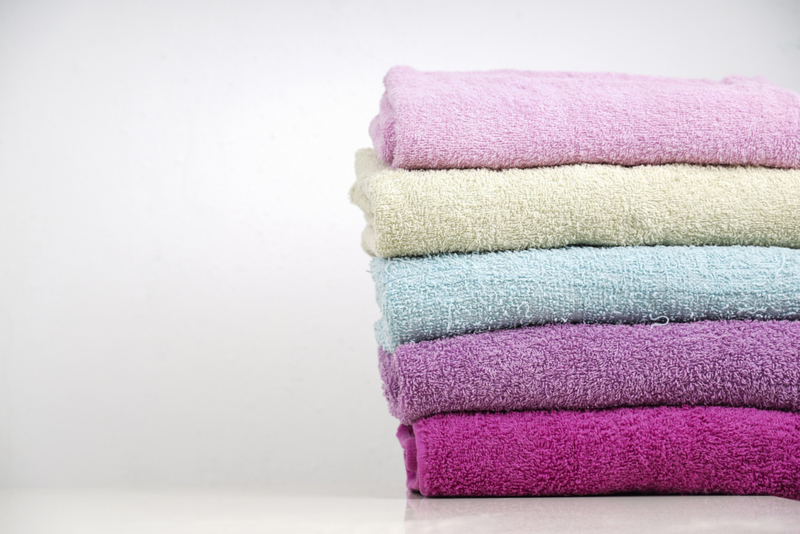
As an added bonus to keep the towels at their best, try adding a solution of ½ cup vinegar and a ½ cup peroxide to the wash next time you throw them in. Not only will it help to kill all of the germs and bacteria on the material, but it will also always deodorize to keep them smelling fresh.
Lift Blood Stains
Remember that time you sliced open your hand trying to help out with dinner at the in-laws' place on Thanksgiving in 06’? Most likely, your mother-in-law ran off to grab a bottle of hydrogen peroxide after the incident, both for your cut and the clean towel you had to use to stop the bleeding.
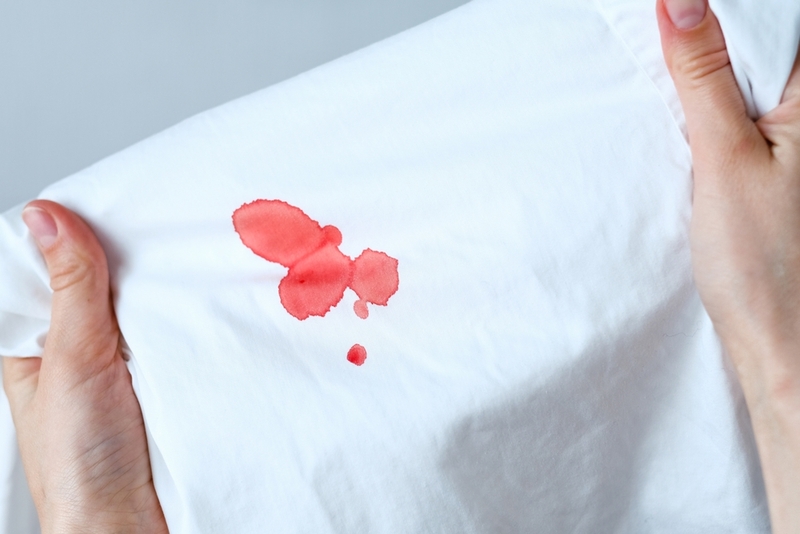
To remove blood stains from clothes (yes, even white ones,) pour the hydrogen peroxide directly onto the stain and let it sit for several minutes. Rinse the area and repeat as many times as necessary to completely erase the discoloration. Then, when you throw your whites in the washer, add a cup of peroxide to the wash to further whiten and brighten the affected clothing, towels, or sheets, etc.
Kill Odor in Shoes
Have you worn your shoes out so much the odor coming from within is enough to take out a room full of people? Spray hydrogen peroxide directly from a bottle all over the inside of your shoe to kill the bacteria. Add a coating of baking soda over the entire insole, and, if it’s really bad, a couple of spritzes of peppermint or lavender oil. Let sit in a cool and dry area overnight.
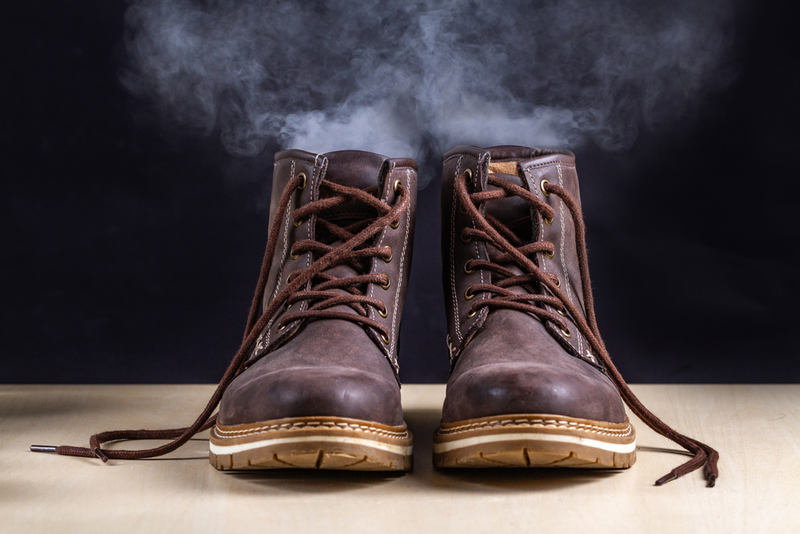
In the morning, turn the shoes over and dump them out over a trash can. Use a paper towel to wipe out the inside and soak up any remaining moisture. Repeat as often as necessary to keep the smell at bay.
Encourage Healthy Plant Growth
Keeping plants alive and well takes some serious commitment. Well, unless you specifically opt for a low-maintenance houseplant, which still takes commitment, just not as much. In any case, plants can benefit from oxygen within three percent hydrogen peroxide.
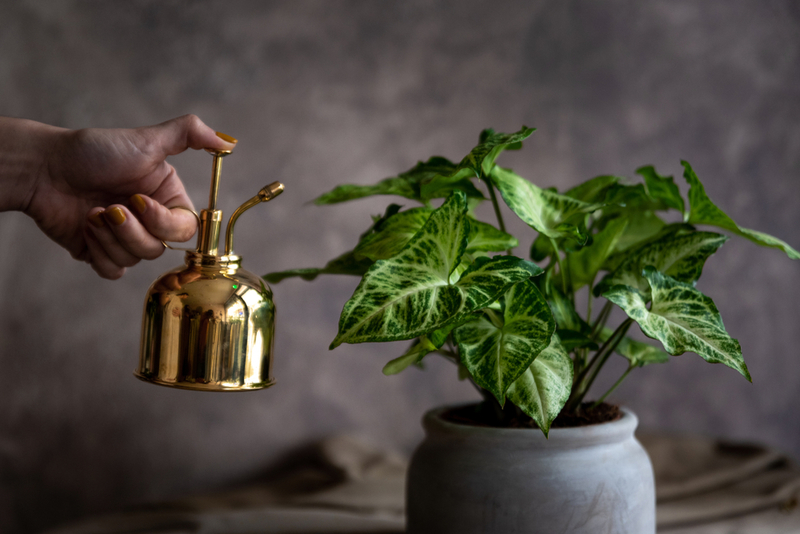
To keep your plants looking and feeling well, mix one teaspoon per one cup of water in a spray bottle. Mist the plants, both leaves, and roots, if they look like they could use a boost of nutrients and energy. Be careful not to overdo this, as it could result in some adverse effects.
Keep the Toilet Bowl White and Bright
Most toilet bowl cleaners that you can buy from a store include bleach and wind up making your bathroom smell like a public pool for hours. If you’re like those of us who prefer more natural alternatives, this may be something you want to look into.
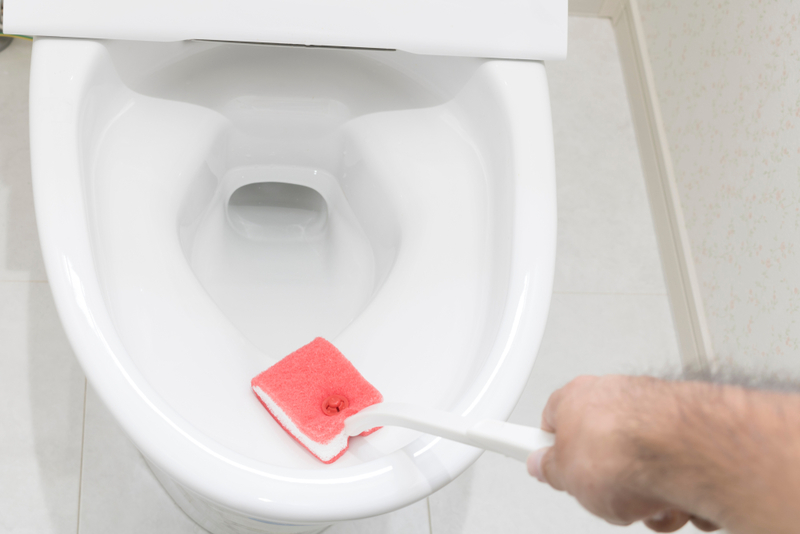
Pour a half cup of hydrogen peroxide into the toilet bowl, down the sides if possible. Let the solution soak for at least 30 minutes to an hour. Then, use a toilet brush to scrub the inside of the toilet free of any discoloration and germs. Flush. If you do prefer to have some type of fresh scent in your toilet bowl cleaner, you can add a few drops of lemon juice or peppermint oil.
Clean Cuts and Small Wounds
This is most likely the main thing you associate with hydrogen peroxide being used for. After all, it was all too common for moms to keep it under the sink for busted knees and chins.
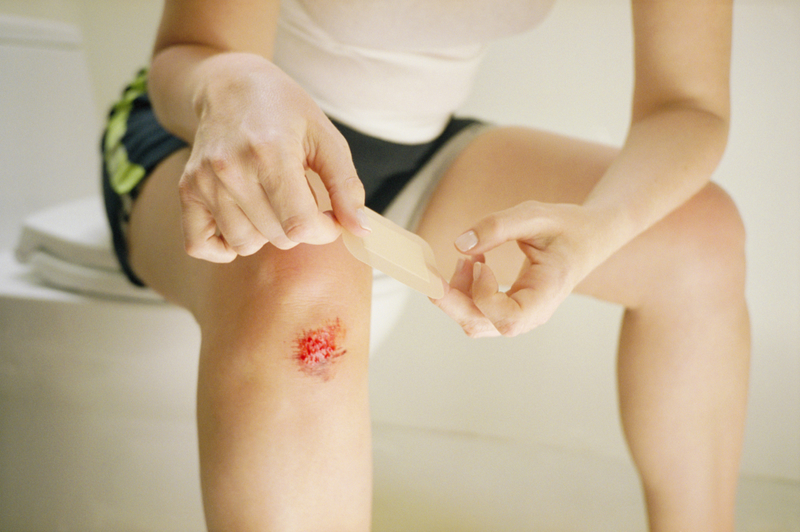
Hydrogen peroxide still does the job when it comes to cleaning out wounds. Put some in an eyedropper and put it directly onto the wound (or pour it, just don’t let the bottle touch the skin,) let it bubble for a few moments and then pat it dry and add some Neosporin and a Band-Aid, if needed. If you’re dealing with a deep wound that won’t stop bleeding, get checked out for stitches before trying anything at home.
Keep Lunch Pails Free of Germs
Keeping with the theme of kids being walking germ magnets, something else to think about is the lunchbox you send them to school with every day. They’re reaching in with their hands, which have been all over school doorknobs, bathroom stalls and God knows what else, to pull out their food. Plus, if they trade food or anything, there will be more than one set of dirty little hands in there.
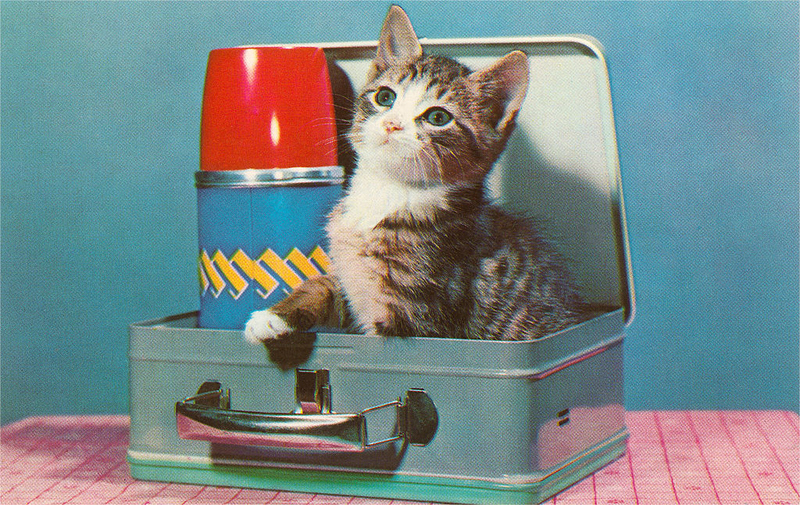
To make sure your kids' lunchboxes don’t turn into bacteria breeding facilities, keep them disinfected with a simple peroxide and water solution! Use the trusty spritz, soak, rinse, and dry method when they bring them home at night.
Disinfect the Kids' Toys
When you’ve got a little one, everything in the house (within reach of baby arms, of course) is in danger of being ingested. That means that everything they touch is basically just one giant germ factory. And the last thing you want to do is use harmful cleaning agents on anything your baby touches.

But you can keep their toys clean and disinfected without risking them touching (or eating) any sort of chemical. Mix one-part water to one-part hydrogen peroxide in a spray bottle and spritz toys at the end of each day (or as much as you can possibly remember) to keep them germ-free.
Keep Your Sponges Clean
Kitchen sponges do one hefty job keeping all of the dishes clean. But you don’t want to let bacteria build up on your sponge, which could end up back on those dishes and make you sick. Sure, you can always spray them with bleach and let them soak for a while before rinsing. However, if you prefer something a little less harsh, why not use hydrogen peroxide?
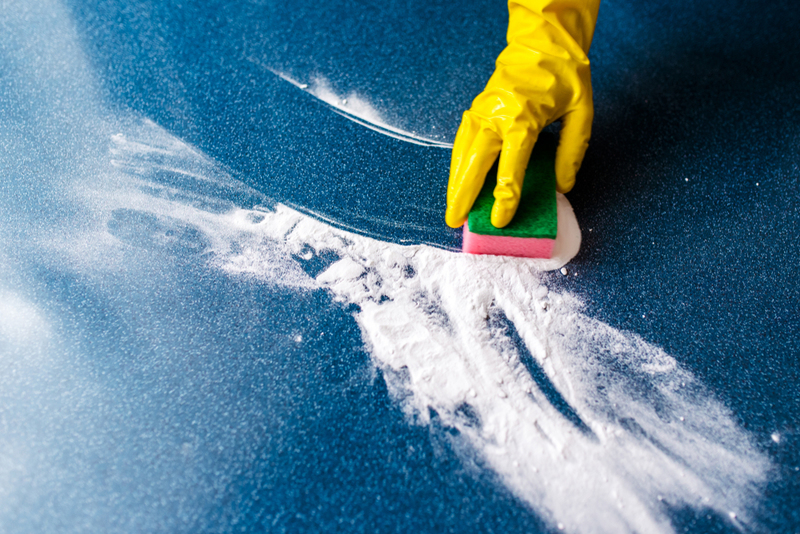
Keep some straight hydrogen peroxide in a spray bottle and spray it directly onto the sponge, on both sides. Let it sit and soak for 15-20 minutes and rinse completely, squeezing out any excess bubbles. You can also simply pour it on your sponge, but if you want to save money, use the spray bottle.
Kill Underarm Odors
Most deodorants on the market today contain aluminum, which may deter you from wanting to smear it onto your skin. There are some natural deodorants on the market that actually work, but they can be pretty expensive. So, the next logical step is to create a natural deodorant of your own. You can do this using hydrogen peroxide and baking soda.
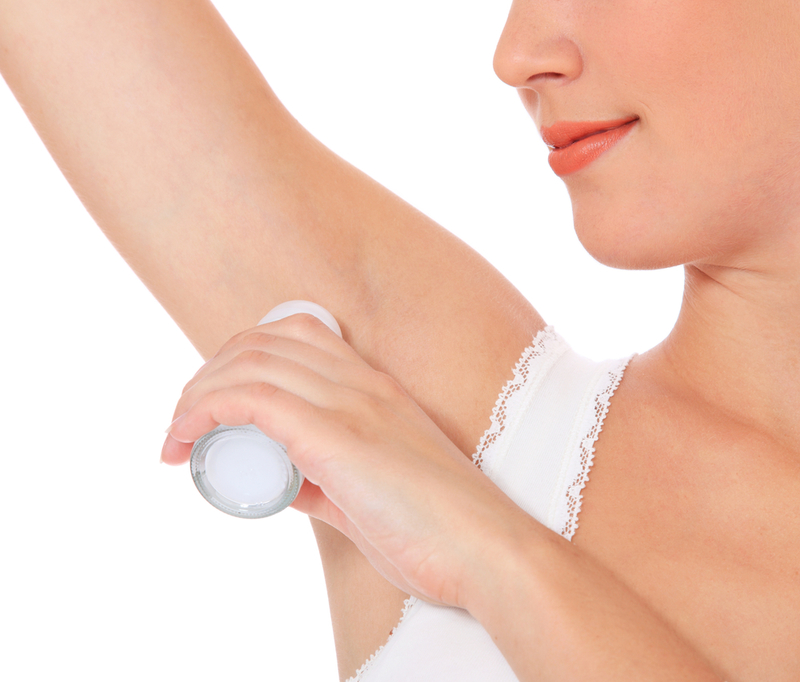
Add one part of water to two-parts hydrogen peroxide in a small spray bottle and shake lightly to combine. Spritz the solution onto your underarm area and dab a bit of baking soda on afterward. This will work to prevent odors, but it does not work as an antiperspirant, which means you may still sweat, it just won’t smell as bad.
Relieve Tooth Pain
Even though overusing hydrogen peroxide on your teeth can cause some sensitivity, using it occasionally will do wonders for the inside of your mouth. Not only will swishing with the peroxide help to whiten your teeth and freshen your breath, but it can also alleviate tooth pain, depending on the cause.
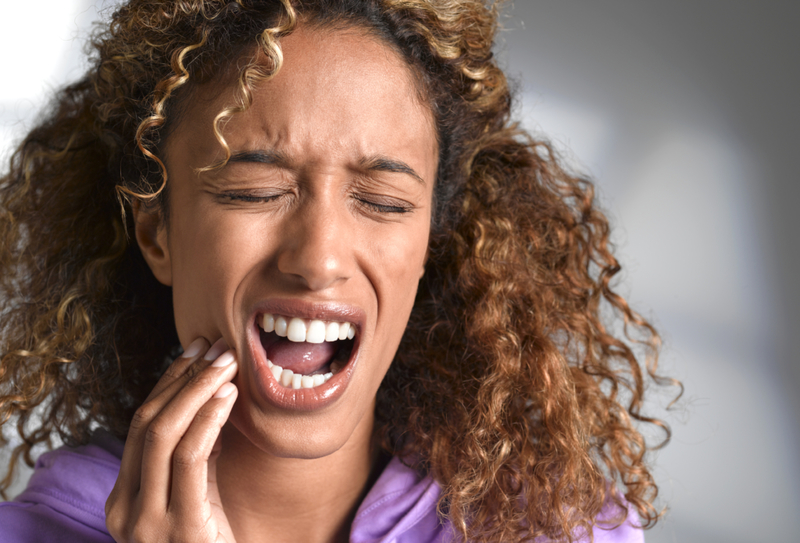
If your toothache is the result of an infection, hydrogen peroxide can help to remedy the issue. Simply mix equal parts peroxide and water and swish throughout the mouth for 3-5 minutes, concentrating on the part of your mouth that hurts. The solution should help to get rid of some of the bacteria that are causing you discomfort. Taking a Tylenol won’t hurt, either.
Kill Bad Breath
Rinsing out your mouth with a hydrogen peroxide solution a couple of times per week can help keep it free from the bacteria that cause bad breath. Keep a small plastic cup in your bathroom and mix one part of water with one-part peroxide. Swish and gargle the mixture for a minute, spit and rinse with water.
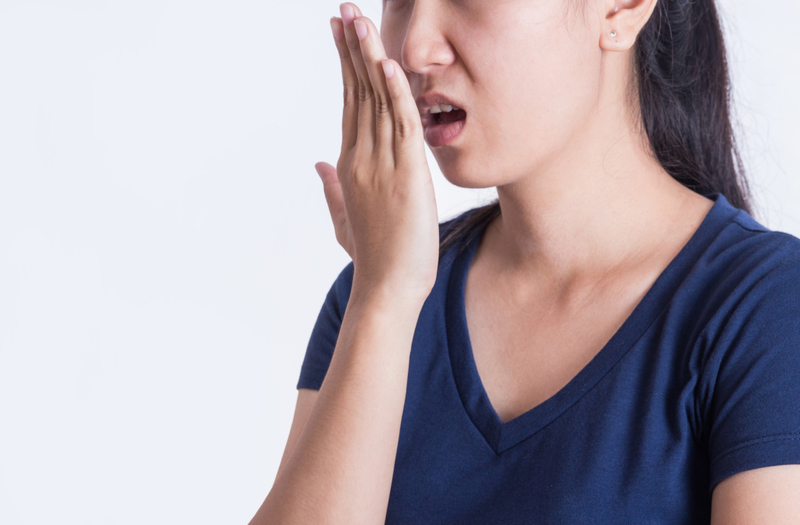
Doing this will actually have multiple benefits – both visible and invisible. Not only will swishing with the peroxide help kill bad breath-causing germs, but it will also keep your teeth nice and white! Don’t do this anymore than 2-3 times per week, however, since you do need the good bacteria, and you don’t want to be too tough on your teeth.
Rust Buster
Much like many other impure elements, rust is something that can be dissolved by the miraculous powers of hydrogen peroxide. To remove rust from small metal objects like nuts and bolts, simply fill up a tub with the bubbly liquid. Pop the bolts into the tub and let them sit for 30 minutes.

After half an hour, use a copper cloth or something equally as rough and scrub the metal until you no longer see any rust. For larger pieces, you can try pouring the peroxide over them, if they’re positioned in such a way it won’t just roll right off of it, and then follow the same scrubbing instructions.
Clear Up Your Skin
Acne is caused by having a buildup of sebum (oil) on your skin. There is an array of expensive products out there, but if you’ve struggled with acne for a while, you know they don’t always work. Next time you get a breakout, grab an extra bottle of hydrogen peroxide and some cotton balls and head to the bathroom.

First, wash your face with your regular cleanser and pat dry with a washcloth. Dip one of your cotton balls in the peroxide and dab it all over the affected areas of your face. Be sure not to use the solution for any longer than five minutes, as overdoing it can cause your skin to dry out too much.
Keep Bugs Away
No one in their right mind enjoys bugs biting them, or destroying the crops in their garden, or transferring disease. But we can't possibly get away from it all. Bug sprays from the store are full of chemicals and make your skin smell absolutely terrible. Sure, they might keep the bugs away, but they’ll also keep your significant other away.

To avoid being bit and smelling like something no one can pronounce, try this DIY peroxide pesticide. Mix one-part peroxide to one-part water in a small spray bottle and spray directly on the skin to deter bugs. Hydrogen peroxide can actually kill insect eggs and larvae of some kinds, as well.
Clean Your Humidifier
Among the many amazing benefits of hydrogen peroxide is keeping your air clean. Now, you can’t just toss it around the room and hope for the best but using it in tandem with your humidifier can help ensure the air you’re breathing is clear.

Add a few drops of the solution to the water tank to help keep bacteria at bay. Make sure that you’re using the three percent peroxide. This method will work best if you’re using filtered water in your humidifier. Brita's reusable filters make it easy to keep it refilled without spending a ton of money.
Give Your Dishwasher a Boost
Hydrogen peroxide can work wonders within the insides of your dishwasher. Adding some 3% solution to the machine before a wash cycle can oxidize and sanitize the entire area. Simply add ¼ cup of peroxide to the bottom of the machine before you close it and push start.

You can buy dishwasher cleaning fluid at the stores, but there’s a good chance it will be full of chemicals. Do you really want toxic chemicals inside of the thing your dishes go into every day? This at-home solution is non-toxic, so you don’t have to worry about what you’re ingesting.
Destroyer of Mold
The mold destroyer may sound like a badly named villain in some educational film about housecleaning, but mold is no joke. Mold problems in the home can cause serious respiratory and other health issues.
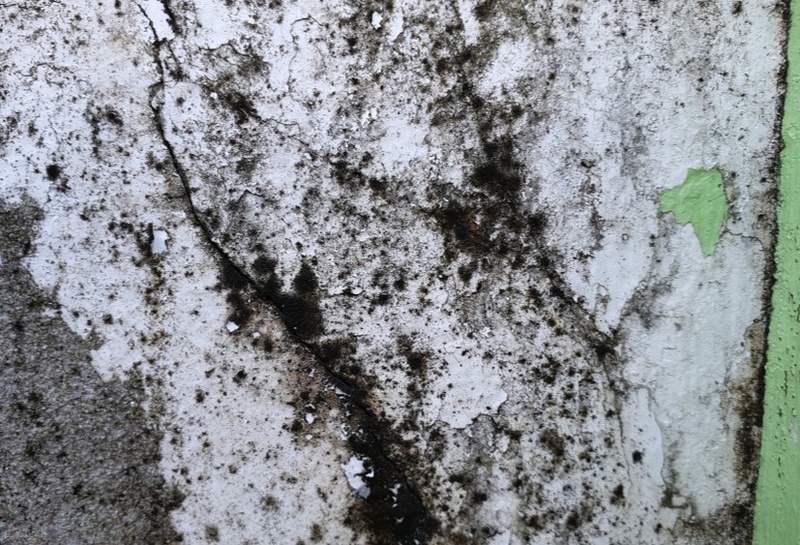
Of course, this solution won’t do you any good if you have found black mold in your walls or something, but if you’ve got a bit on the shower curtain or somewhere else visible and easy to reach, pull out your trusty hydrogen peroxide and pour some into a spray bottle. Spray the concentrated solution directly onto the moldy area, let sit for 15 minutes, scrub, and wipe.
Glass Cleaner
Mirrors can be a very finicky thing to clean. If you don’t do it enough, you’ll wind up with spots that make it hard to see your own reflection. If you do it too much, or if you don’t do it correctly, you’ll end up with streaks that have the same negative effect.

The solution? A trusty mixture of one-part water and one-part peroxide in a spray bottle and shake lightly. Spritz onto mirrors and use balled-up newspaper to wipe them down. Say hello to your new, favorite (and green) glass cleaner!
At-Home Highlights
Try some at-home peroxide solution to highlight your hair! Mix one-part peroxide with one-part water in an empty spray bottle and shake to combine. You can also add a bit of lemon juice for a stronger effect.

Spritz the mixture directly onto the areas you want to lighten and head out into the sun. Better yet, camp out in the yard or at the pool, or somewhere where you can relax for an hour or two. Bring the spray bottle with you to re-spritz throughout the day. If you do head to the pool, remember that the chlorine in the water can create a greenish tint in lighter hair colors. Don’t forget to rinse your hair when you’re done swimming.
Nail Whitener
Just like many other surfaces, your nails can also benefit from the power of hydrogen peroxide. Nails may turn yellow for a variety of reasons, including smoking, health issues, stress, or beauty products. To make sure your nails stay their natural color, try this at-home solution.

Fill a small container with a teaspoon of hydrogen peroxide and a teaspoon of water. Let each nail soak for 10-30 seconds on the mixture and wipe dry with a clean towel. Alternatively, you can soak a cotton ball in the mixture and let it sit on your nails for the same amount of time.
Teeth Whitener
You could waste a ridiculous amount of money to go to the dentist and have your teeth professionally whitened. Or, you could use those drugstore tooth whitening trays that leave you unable to swallow comfortably for like, an hour.
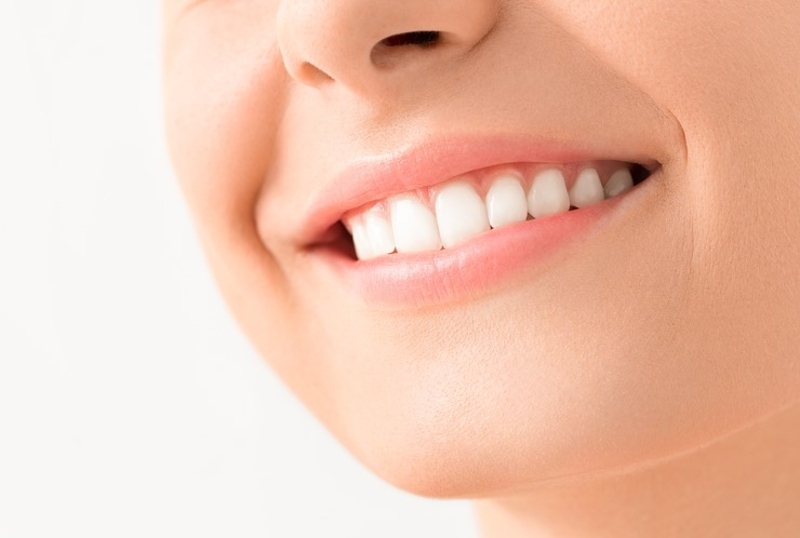
But if you’d rather avoid doing either of those things, you can make your own teeth whitener at home, using only hydrogen peroxide and baking soda. Dip your toothbrush into the peroxide and cover with baking soda. Brush your teeth for at least a minute before rinsing. Do it once or twice per week.
Get Rid of Canker Sores
Canker sores can be triggered by some types of foods and are very uncomfortable to deal with. Luckily, hydrogen peroxide can help heal them in no time. The peroxide can help keep the bacteria around the canker sore to a minimum, which in turn helps promote faster recovery.
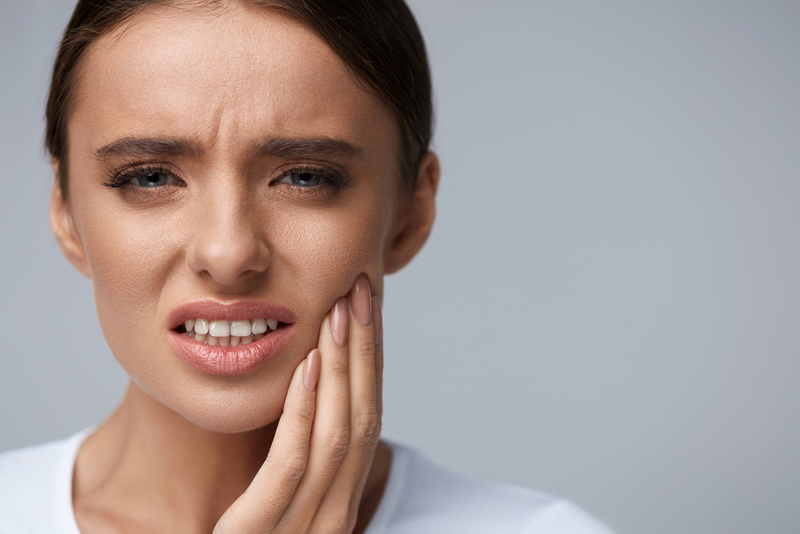
Mix equal parts of water and peroxide in a small container and apply directly to the affected area. Repeat the application three times per day until the sore disappears. You can simply swish the solution around in your mouth to apply. Just be sure not to swallow any peroxide.
Keep Your Retainer Clean
Our mouths are full of germs, which means so is your retainer. As peroxide is amazing for dissolving odors, you can imagine how beneficial it can be as a DIY retainer cleaner. Plus, it’s non-toxic and safe to use orally.
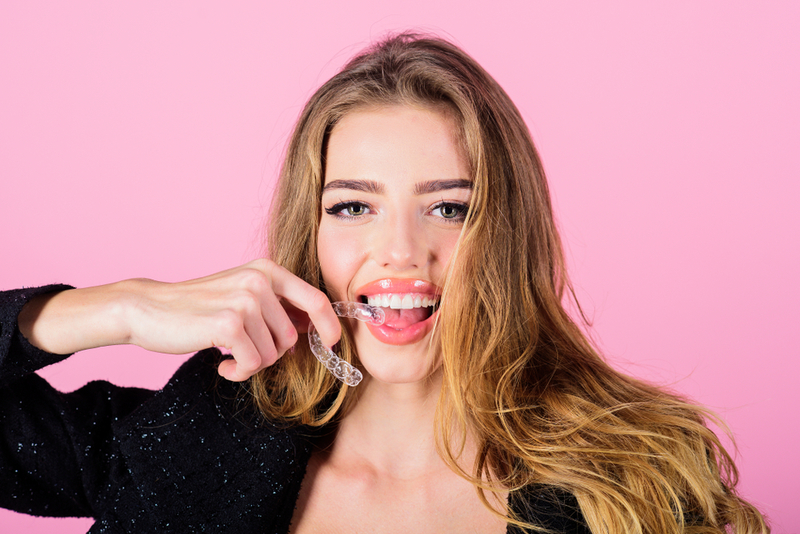
To create the solution, mix equal parts peroxide and water in a small glass and soak the retainer for 30 minutes. All of the bubbles you see are fizzing away the bacteria and odors. For a minty fresh kick, you can add a couple of drops of mint essential oil to the glass, as well. Just make sure to stir it up a bit so you don’t end up with a concentrated area of oil in your mouth!
Clean the Tub
You can remove stains and odors from all sorts of different materials and surfaces with peroxide. Mix one part of water with one part of the bubbly liquid in a spray bottle and shake lightly. Keep it stored under the bathroom sink for easy access.
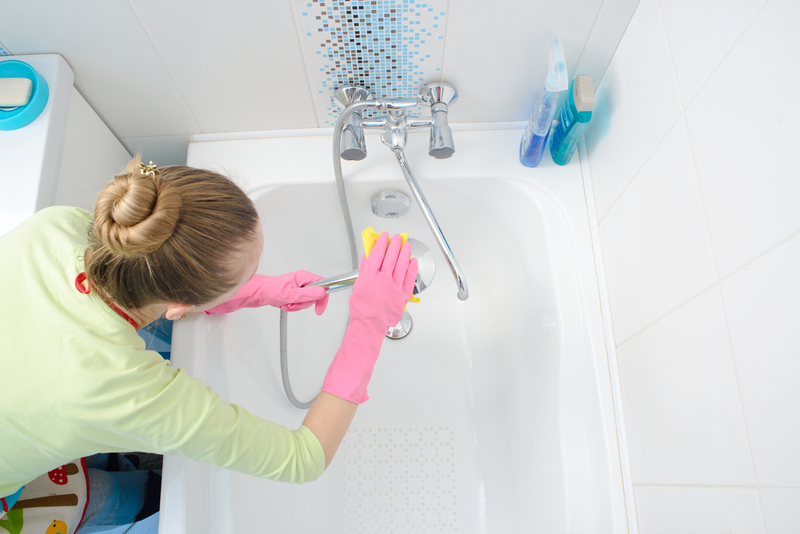
Whenever it’s time to clean the bathroom counters, bathtub, or toilet, use your homemade solution instead of reaching for an $8 bottle of chemicals. Spray the mixture on the surface, let it sit for a few moments, scrub if necessary and wipe clean with paper towels or a rag.
Add to Laundry for Whitening
Not only can you use hydrogen peroxide directly on stains to lift them right out of clothes, but you can also add it to your loads of whites to whiten and brighten the laundry. While bleach does the same job, it’s also a lot harsher to deal with.
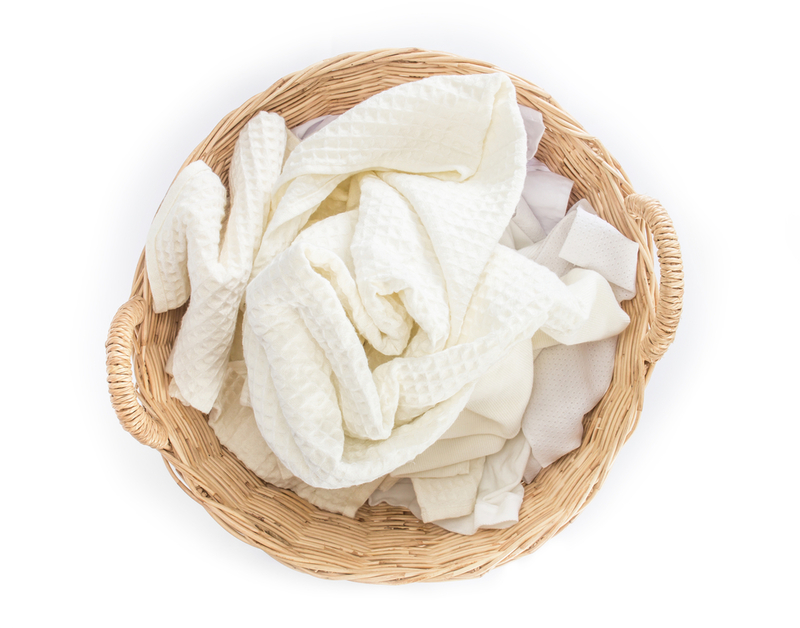
While the washer is filling with hot water, add a cup of hydrogen peroxide. This solution will not only lift stains and brighten clothes and towels, but it will also help remove odors. Doing this instead of using bleach or expensive and harsh whitening ingredients is safer on your skin and will save you money.
Clean Fruits and Vegetables
Fruits and veggies are hands down some of the healthiest foods for you. Unfortunately, bugs love them too. Because of this, they’re sprayed with pesticides when they’re grown. This is why you should always rinse them yourself just to be on the safe side.
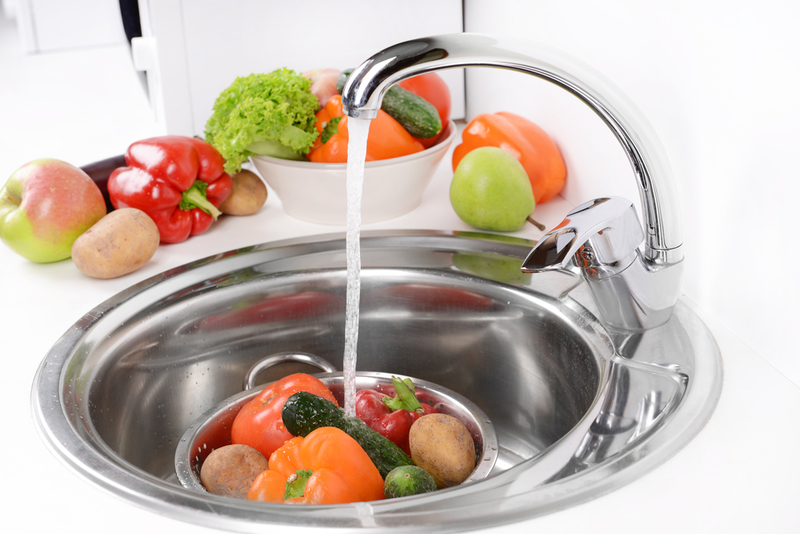
Simply rinsing them with water may not completely rid them of the chemicals, so you can try this DIY solution: combine one part of hydrogen peroxide with one part water in a spray bottle and shake softly to combine. Spray the combination on your product and let it sit for a couple of minutes before rinsing with water.
Slough Dry Skin Off Your Feet
You could spend a fortune trying to fix dry, cracked heels. If it seems as though nothing’s doing the trick, try this home remedy using hydrogen peroxide.

You will need about half an hour for this solution to really work its magic. Fill a large bowl or tub with two cups of warm water and two cups of hydrogen peroxide. Immerse your feet in the mixture and sit for 30-35 minutes. Use a pumice stone to exfoliate your heels one at a time during the treatment. Pat your feet dry with a towel when you’re done and coat feet with thick, moisturizing lotion. Put on a pair of socks to hold the moisture in and leave them on overnight.
Bring Pots and Pans Back to Life
If you’re a fan of deep-frying foods or any kind of pan-frying, you’re probably all too familiar with the (seemingly) permanent brown spots that can develop after using it for some time.
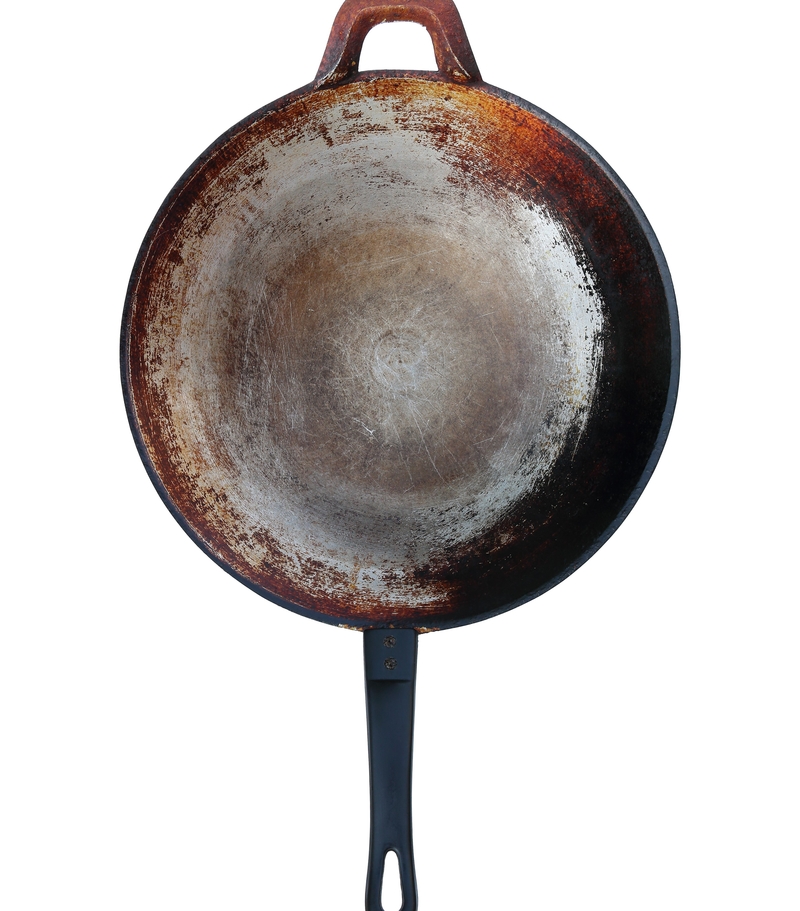
If you’re ready to liven up your kitchen, grab your trusted hydrogen peroxide and some baking soda. Pour half an inch of the liquid into your pan, followed by ¼ cup of baking soda, and turn the heat up. When it starts to bubble, remove it from the heat and let it sit and cool for about 10 minutes. Then, scrub vigorously with a scruff pad. Rinse and wipe.
Lift Pit Stains
Pit stains are basically unavoidable. Especially in gray t-shirts, and when you’ve got kids, other stains happen pretty regularly too.
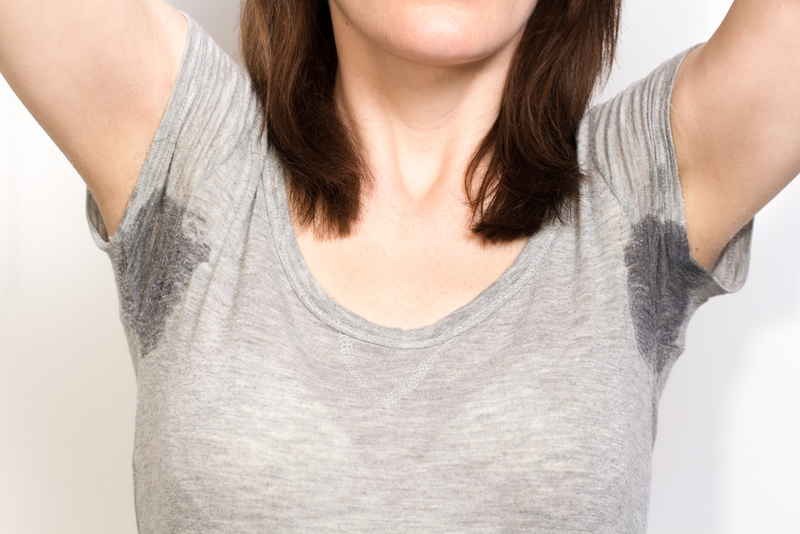
Luckily, hydrogen peroxide can help make sure that your family’s clothes stay clean. You can pour the solution directly on bloodstains and watch as it bubbles out the stain right before your eyes. Make sure to do it over a sink and rinse with water. The same process applies to the dreaded yellow pit stains.
Clean Your Beauty Tools
Sure, you can spend $15 on a bottle of makeup brush cleaner, which is certainly one option – and a good one, if you’ve got the money to blow. A lot of the solutions you can buy in stores include alcohol and some other less-than-desirable ingredients that you don’t want to smear all over your face.
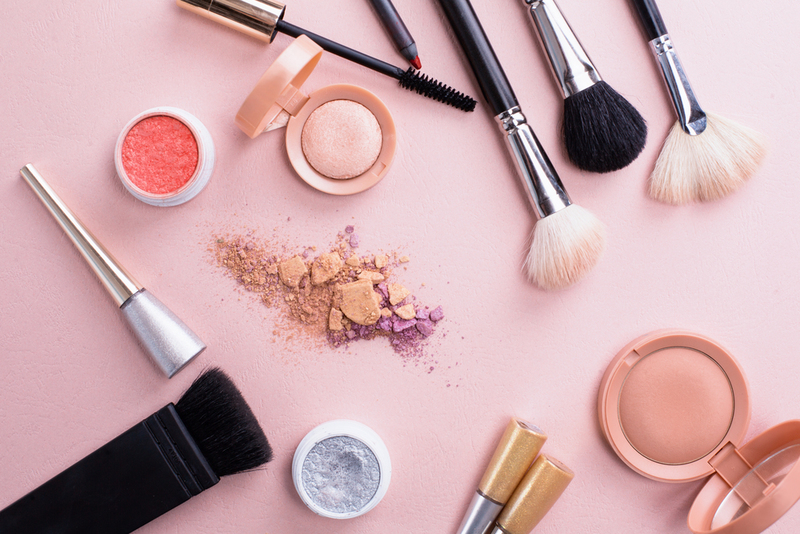
A safer and much more affordable option is to use a solution of hydrogen peroxide and water to clean your brushes and sponges. Simply mix one-part hydrogen peroxide with one-part water in a small container. Put your brushes in the solution for 10 minutes, swirl each one around, and rinse them off in clean water.
Clean Your (Or Your Pet's) Ears
To clean your ears, and your pet's ears, safely and effectively, use an eyedropper to fill it with a few drops of hydrogen peroxide and drip it slowly into the ear canal.
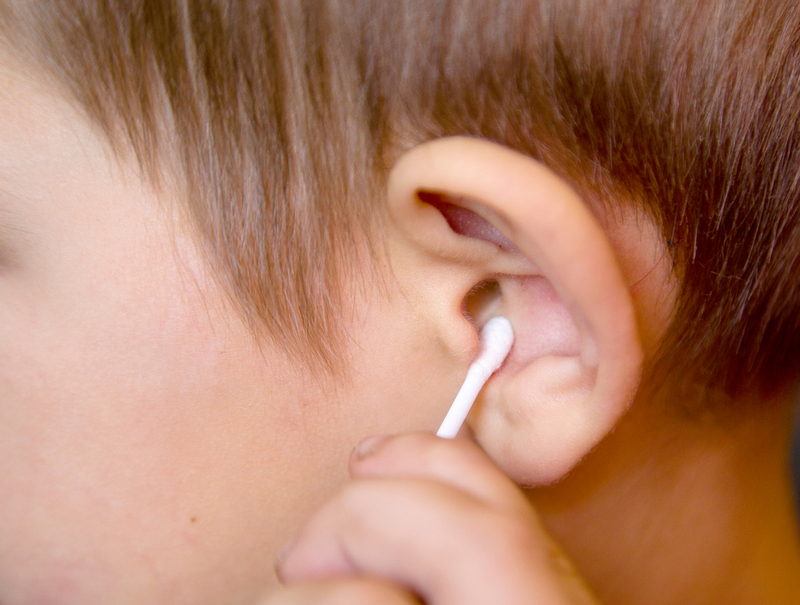
Let it sit for a couple of minutes with your head tilted so it can fill up and do its job. Then, tilt your head to the other side and use a cotton ball or tissue to wipe any remaining fluid. If you’re using the solution on a pet, just be sure that the drops go into their ear canal, rub their ear lobes a bit to really saturate the area, and release them. They will shake their head and will naturally release any build-up within.
Remove Carpet Stains
Having white carpets should be something reserved for places where children, pets, and coffee do not exist. But if you happen to have a light-colored carpet and any of the above things, hydrogen peroxide should be an under-the-sink staple in your house.
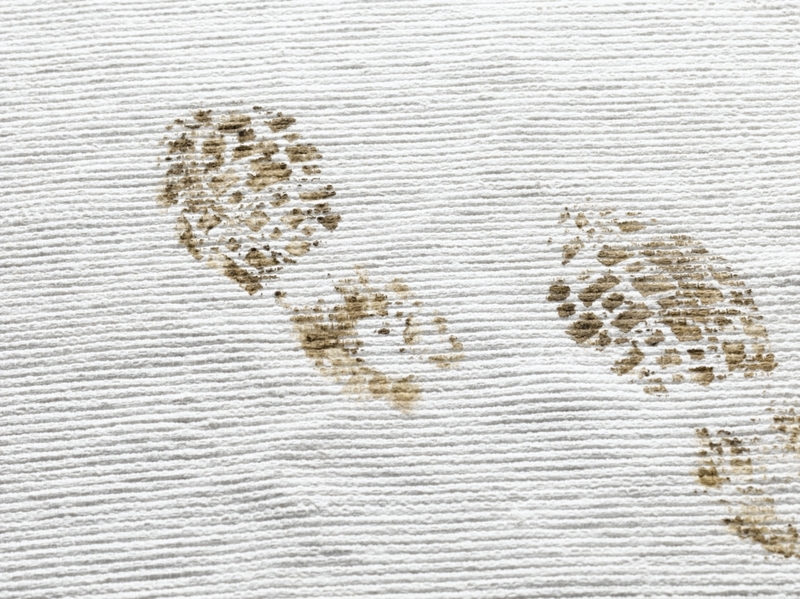
Use an empty bottle and fill it with five ounces of hydrogen peroxide and one ounce of Dawn dish soap. Mix lightly and spray it on the affected area. Let the solution sit for a couple of minutes and scrub in with a clean rag. Then, spray with a water bottle that contains pure H2o and wipe again until the whole solution is gone. Repeat until you can no longer see any visible stains.